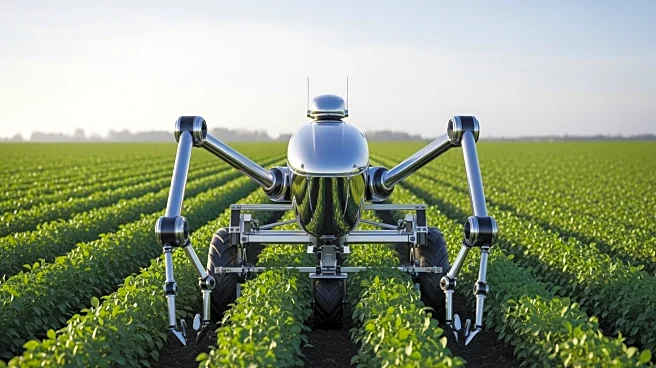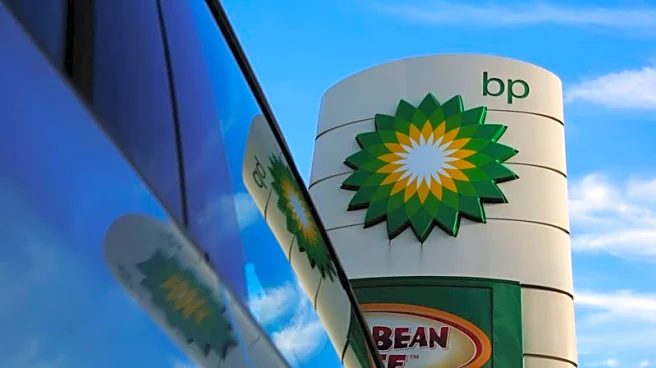What's Happening?
XMachines, an Indian company, is set to launch its new autonomous field robot, Neo, in December. Designed as a fully electric, multi-purpose machine, Neo is equipped to perform various farming tasks such
as spraying, mowing, shallow tilling, seeding, and payload transport. The robot is primarily targeted at small to mid-sized farms aiming to enhance productivity and reduce labor dependency. Neo features advanced navigation technology using RTK-GPS and AI vision, along with LiDAR sensors for real-time obstacle detection. It offers zero-turn maneuverability and can operate autonomously with a remote manual override option. The robot is priced at $19,995 and will be available in several countries, including the United States, starting in 2026.
Why It's Important?
The introduction of Neo represents a significant advancement in agricultural technology, particularly for small to mid-sized farms that often struggle with labor costs and efficiency. By automating essential farming tasks, Neo can help these farms increase productivity while reducing reliance on human labor. This could lead to more sustainable farming practices and potentially lower operational costs. The robot's ability to cover up to 8 acres in 8 to 10 hours demonstrates its efficiency, making it a valuable asset for farms looking to optimize their operations. Additionally, the deployment of such technology could level the playing field between smaller farms and larger agricultural enterprises.
What's Next?
Following its launch, XMachines plans to deploy at least 250 units of Neo globally by the end of 2026. The company aims to expand its market presence in countries like India, Saudi Arabia, Australia, Italy, Macedonia, and the United States. As the technology becomes more widespread, it is likely to attract interest from other regions and potentially lead to further innovations in autonomous farming equipment. Stakeholders in the agricultural sector may need to consider the implications of increased automation on labor markets and farm management practices.
Beyond the Headlines
The adoption of autonomous farming technology like Neo could have broader implications for the agricultural industry, including ethical considerations regarding labor displacement and the environmental impact of increased mechanization. As farms transition to more automated systems, there may be a need for new regulations and standards to ensure safe and sustainable practices. Additionally, the integration of AI and advanced sensors in farming equipment raises questions about data privacy and security.











